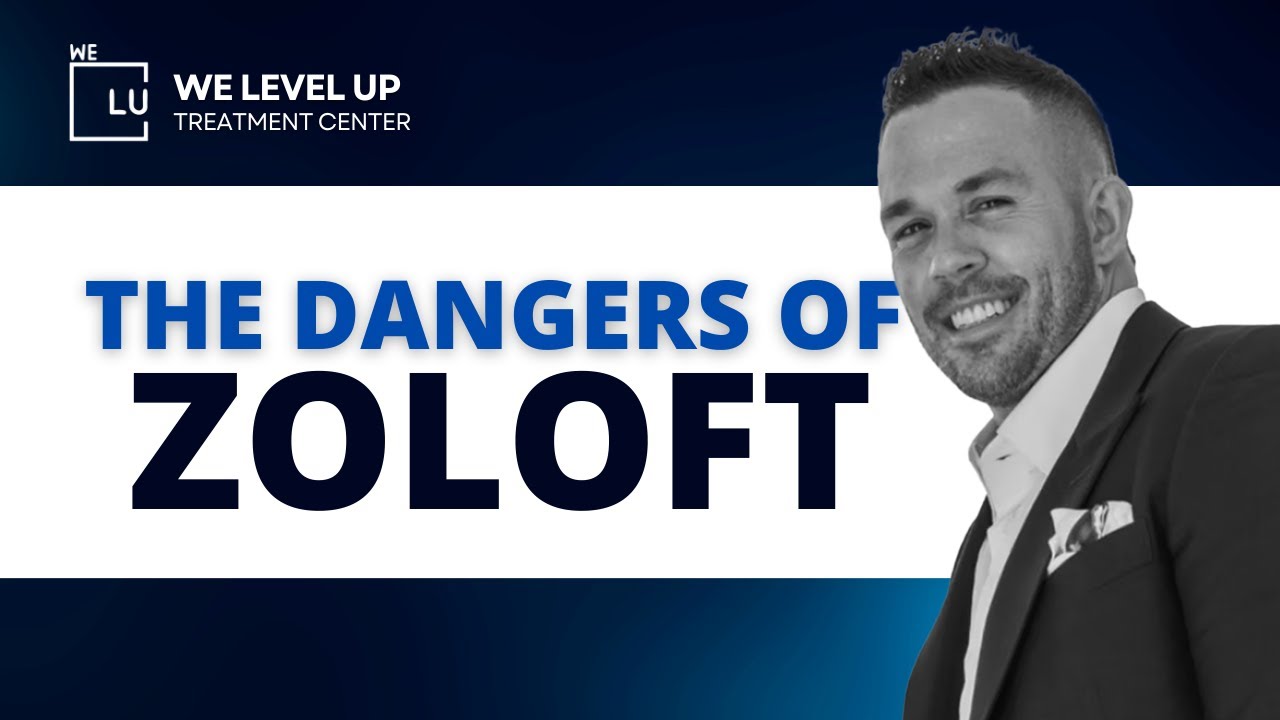Is PCP Addictive?
Phencyclidine, commonly called PCP, was initially developed as a general anesthetic. However, its medical use has ceased in the United States. Currently, PCP is primarily recognized as a substance for recreational use and abuse rather than serving any medical purpose. It comes in tablet, pill, liquid, or white powder form.
Although it is most frequently smoked, the hallucinogenic substance may also be misused by snorting or ingesting it. Users soak leafy plants like tobacco, mint, parsley, oregano, marijuana, or other plants in PCP before smoking them.
Seeking professional help is crucial for those struggling with PCP addiction to ensure a safe and effective path towards recovery. Take advantage of your chance to get your life back. Call We Level Up Texas Treatment Center 24/7 for a free consultation. Every call is free and confidential.
What is PCP?
PCP is labeled as a Schedule II drug under the Controlled Substances Act by the Drug Enforcement Administration. Similar to cocaine and methamphetamine, PCP has a high risk of abuse.
How addictive is PCP?
Known for inducing a sense of detachment and dissociation from one’s surroundings, PCP can also cause euphoria. However, its withdrawal effects are notably discomforting, leading to delusions, irritability, and anxiety during the user’s comedown from the drug’s influence.
PCP is available in various forms: in liquid, it exhibits a yellow or clear hue, or in powder or tablet form, it readily dissolves in water. Additionally, PCP is frequently combined with other substances, including Ecstasy, Methamphetamine, LSD, and Mescaline, often without the user’s awareness.
PCP Street Names
In drug culture, many who use illicit drugs use slang names to refer to PCP and stay under the radar discreetly. Some of the slang names for PCP are:
- Angel Dust.
- Dust.
- Hog.
- Rocket Fuel.
- Amoeba.
- STP.
- Super Grass.
- Zoom.
- Wack
- Belladonna.
- Zoom.
- Ozone.
- Peace Pills.
- Boat.
- Animal Trank.
- Love Boat.
- Sherm Sticks.
- Embalming Fluid.
The Dangers of PCP Addiction
PCP is addictive as it affects the brain’s chemistry, leading to feelings of euphoria. Depending on how it’s taken, PCP effects can be felt rapidly, like 2 to 5 minutes for injecting or smoking, with the experience lasting about half an hour. Swallowing takes roughly 30 minutes for effects, with intense side effects occurring 2 to 5 hours later.
Due to altered states of consciousness, users, especially those seeking sensory distortions or pseudo-spiritual experiences, may become dependent. Mood changes and poor coordination are common side effects, varying with the dose size.

Skip To:
Learn More:
PCP Addiction Symptoms
Like many substances of abuse, PCP might offer euphoria initially, but it leads to adverse effects in the aftermath. The most common signs and symptoms of PCP addiction are:
- Drastic mood swings.
- Impaired coordination.
- Hallucinations.
- Agitation.
- Anxiety.
- Social withdrawal.
- Confusion.
- Speech difficulties.
- Memory problems.
- Paranoia.
- Delusions.
- Impaired motor skills.
- Sweating.
- Elevated heart rate.
- Unpredictable behavior.
- Poor judgment.
- Appetite changes.
- Insomnia.
- Depression.
- Suicidal thoughts.
PCP use can lead to varying experiences because each trip may bring different symptoms. One person might get aggressive, while another could become overly empathetic or anxious. Predicting the specific symptoms is challenging since they often depend on the user’s mental state before taking PCP.
Other signs of PCP addiction include losing control over drug intake and escalating substance use. Prolonged abuse may lead to severe side effects such as suicidal thoughts, mania, flashbacks, and social isolation. Moreover, mixing PCP with alcohol or other depressants is particularly difficult, potentially causing respiratory distress or arrest and even death.

PCP Side Effects
Yellow liquid PCP is trending, especially among young individuals who dip cigarettes in it for the effects. Early exposure to PCP, like with other harmful substances, has an intense impact on the mind.
These are the most common side effects of PCP:
- Hallucinations.
- Impaired coordination.
- Agitation.
- Anxiety.
- Confusion.
- Speech difficulties.
- Memory problems.
- Paranoia.
- Delusions.
- Sweating.
- Elevated heart rate.
- Unpredictable behavior.
- Poor judgment.
- Appetite changes.
- Insomnia.
- Depression.
PCP Withdrawal Symptoms
Stopping PCP suddenly after dependence or addiction leads to painful withdrawal symptoms. Those with PCP addiction experience:
- Confusion.
- Heightened appetite.
- Depression.
- Stronger cravings for the substance.
Psychotic symptoms, such as paranoia, may develop, and it can be challenging to manage.
PCP Overdose Warning Signs
Severe and unexpected symptoms, including agitation, hallucinations, high heart rate, and potentially fatal disorders like seizures or coma, can be signs of a PCP overdose. If someone uses PCP and then becomes extremely confused, aggressive, or has trouble breathing, they need to get help right away.
Monitoring for signs of overdose and seeking prompt assistance can be critical in preventing severe health complications associated with PCP toxicity.

If you’re struggling with PCP drug dependency, get treatment counseling that works. Discover professional help from We Level Up Texas’ addiction and mental health therapists. Start getting support with a free call to our addiction hotline.
Get Help. Get Better. Get Your Life Back.
Searching for Accredited Drug and Alcohol Rehab Centers Near You? We Level Up Texas Is Opening Soon!
Even if you have failed previously and relapsed, or are in the middle of a difficult crisis, we stand ready to support you. Our trusted behavioral health specialists will not give up on you. When you feel ready or just want someone to speak to about therapy alternatives to change your life call us. Even if we cannot assist you, we will lead you to wherever you can get support. There is no obligation. Call our network hotline today.
FREE Addiction Hotline – Call 24/7
Getting Help for PCP Addiction
Treatment is crucial for reducing adverse effects and cravings for PCP drugs. Those having trouble might think about inpatient or detox treatment, which offers a secure setting for recovery under close supervision. Patients in treatment facilities have access to prescriptions that lessen the discomfort associated with withdrawal.
Abuse of PCP may harm the body and mind in several ways. Investing in your health and fitness requires seeking assistance and treatment. Help is available if you or a loved one suffers from PCP abuse. For those thinking about going to rehab, there are several choices for therapy.
PCP Addiction Treatment
Addressing PCP addiction requires a comprehensive approach, often combining various therapeutic interventions to maximize effectiveness. Here are some key treatment options that individuals struggling with PCP addiction can explore on their journey to recovery:
- Behavioral therapy.
- Cognitive-behavioral therapy (CBT).
- Contingency management.
- Motivational enhancement therapy.
- Support groups.
- Individual counseling.
- Family therapy.
- Dual diagnosis treatment (addressing co-occurring mental health disorders).
- Medication-assisted treatment (if applicable for specific symptoms or cravings).
- Inpatient or residential rehabilitation programs.
If you’re seeking assistance with your rehab journey, reach out to a We Level Up Texas treatment professional today—your call is free and confidential.
Opening Soon! First-Class Facilities & Amenities
World-Class High-Quality Addiction & Mental Health Rehabilitation Treatment
Coming Soon! Rehab Centers TourRenowned Addiction Centers. Serene Private Facilities. Inpatient Rehab Programs Vary.
FREE Addiction Hotline – Call 24/7Proven recovery success experience, backed by a Team with History of:
15+
Years of Unified Experience
100s
5-Star Reviews Across Our Centers
10K
Recovery Success Stories Across Our Network
- Low Patient to Therapist Ratio
- Onsite Medical Detox Center
- Comprehensive Dual-Diagnosis Treatment
- Complimentary Family & Alumni Programs
- Coaching, Recovery & Personal Development Events
We Level Up Texas PCP Drug Rehab
Get back on track with We Level Up Texas inpatient rehab center for PCP addiction. Our expert team and medical professionals are ready to guide you through a personalized recovery plan at our top-notch Texas facility. We combine proven methods with compassion and a science-based approach to help you break off PCP’s hold.
Reach out to We Level Up Texas Treatment Center today if you or someone you know is addicted to PCP or any other substance for additional information on how to get support.
Programs offered at We Level Up Texas inpatient rehab for PCP addiction include:
- Detoxification Services.
- Dual Diagnosis Treatment.
- Individual Counseling.
- Group Therapy.
- Medical Supervision.
- Educational Workshops.
- Holistic and Evidence-Based Therapies.
- Aftercare Planning.
Are you seeking PCP rehab centers? Get a free rehab insurance check without any obligation. The result can help you explore several treatment options.

What is Angel Dust (PCP Drug)? PCP Effects, Angel Dust Risks, and Treatment | Informative Video
Start a New Life
Begin with a free call to an addiction & behavioral health treatment advisor. Learn more about our dual-diagnosis programs. The We Level Up treatment center network delivers recovery programs that vary by each treatment facility. Call to learn more.
- Personalized Care
- Caring Accountable Staff
- World-class Amenities
- Licensed & Accredited
- Renowned w/ 100s 5-Star Reviews
We’ll Call You
Search We Level Up Texas Is PCP Addictive? Detox Topics and Resources
Sources
- Substance Abuse and Mental Health Services Administration (US); Office of the Surgeon General (US). Facing Addiction in America: The Surgeon General’s Report on Alcohol, Drugs, and Health [Internet]. Washington (DC): US Department of Health and Human Services; 2016 Nov. [Table], PCP (Phencyclidine) Available from: https://www.ncbi.nlm.nih.gov/books/NBK424847/table/appd.t13/
- Is PCP addicting? Miller NS, Gold MS, Millman R. PCP: a dangerous drug. Fam Physician. 1988 Sep;38(3):215-8. PMID: 3046273.
- Journey JD, Bentley TP. Phencyclidine Toxicity. [Updated 2023 Sep 4]. In: StatPearls [Internet]. Treasure Island (FL): StatPearls Publishing; 2023 Jan-. Available from: https://www.ncbi.nlm.nih.gov/books/NBK507865/
- Bey T, Patel A. Phencyclidine intoxication and adverse effects: a clinical and pharmacological review of an illicit drug. Cal J Emerg Med. 2007 Feb;8(1):9-14. PMID: 20440387; PMCID: PMC2859735. https://www.ncbi.nlm.nih.gov/pmc/articles/PMC2859735/
- Crane CA, Easton CJ, Devine S. The association between phencyclidine use and partner violence: an initial examination. J Addict Dis. 2013;32(2):150-7. Doi 10.1080/10550887.2013.797279. PMID: 23815422; PMCID: PMC4189809. https://www.ncbi.nlm.nih.gov/pmc/articles/PMC4189809/
- PCP Fast Facts – Department of Justice (.gov) https://www.justice.gov/archive/ndic/pubs4/4440/index.htm
- How is PCP addictive? Substance use – phencyclidine (PCP) – MedlinePlus (.gov)
- PHENCYCLIDINE April 2023 (Street Names: PCP, Angel Dust, Supergrass, Boat, Tic Tac, Zoom, Shermans) – DEA Diversion Control Division (.gov) Drug Enforcement Administration https://www.deadiversion.usdoj.gov/drug_chem_info/pcp.pdf
- Domino EF, Luby ED. Phencyclidine/schizophrenia: one view toward the past, the other to the future. Schizophr Bull. 2012 Sep;38(5):914-9. Doi: 10.1093/schbul/sbs011. Epub 2012 Mar 5. PMID: 22390879; PMCID: PMC3446224. https://www.ncbi.nlm.nih.gov/pmc/articles/PMC3446224/
- Mouri A, Noda Y, Enomoto T, Nabeshima T. Phencyclidine animal models of schizophrenia: approaches from glutamatergic neurotransmission and neurodevelopment abnormality. Neurochem Int. 2007 Jul-Sep;51(2-4):173-84. Doi: 10.1016/j.neuint.2007.06.019. Epub 2007 Jun 27. PMID: 17669558. https://pubmed.ncbi.nlm.nih.gov/17669558/






